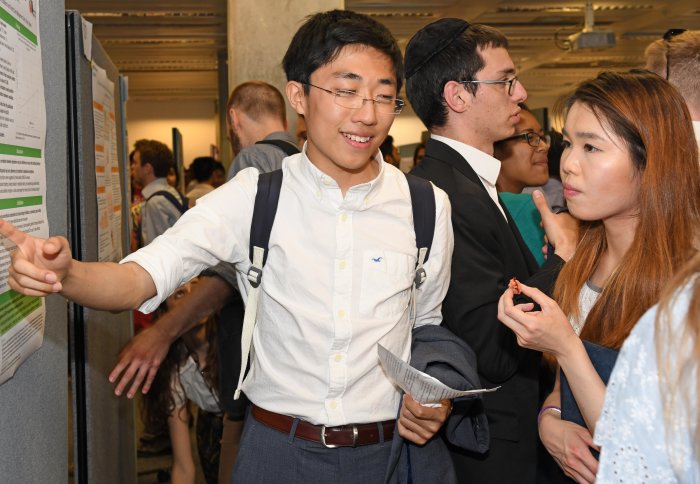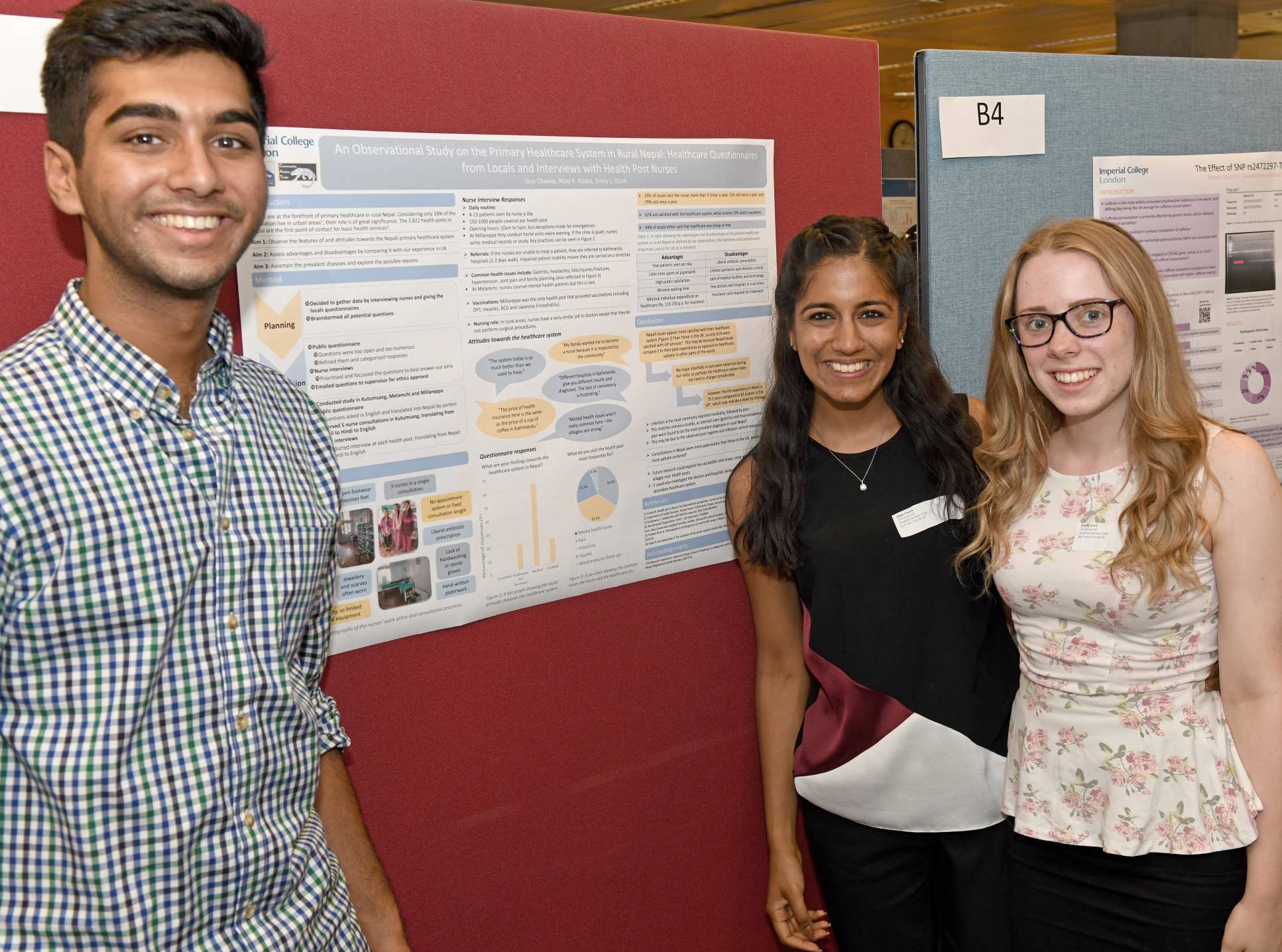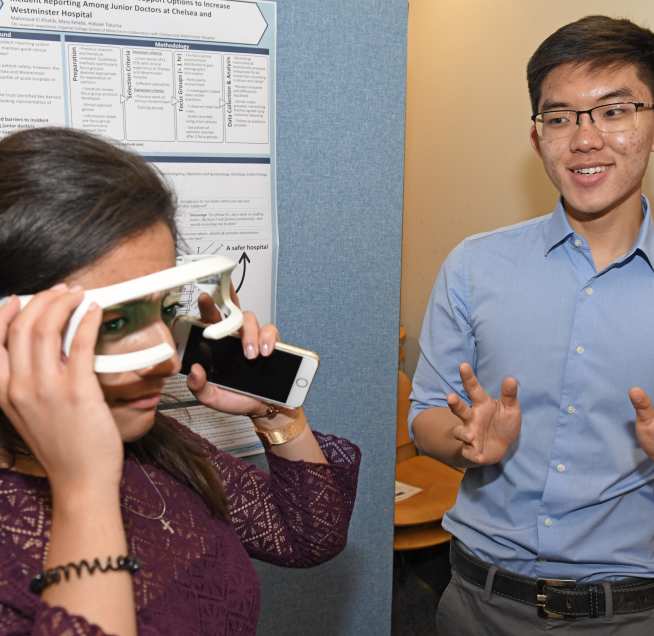Medics celebrate success of innovative new module with Festival of Science

On Tuesday 26 June, MBBS Year 2 students took part in the first Festival of Science at the College’s South Kensington Campus.
The event marked the end of the new Clinical Research and Innovation (CRI) module; a new and innovative module in the MBBS programme where students undertake three-week research experiences from a wide range of clinically related options.
Broad range of experiences
Experiences ranged from health and community care in remote and deprived regions, links between health and mobile technology, virtual reality, through to lab-based work and students sequencing their own DNA.
Students displayed their posters from over 40 different experiences, where they worked in small teams. Parents, collaborators and staff from all over the College, plus Year 1 students - who will take the module next year - attended the celebration.
Head of the Undergraduate School of Medicine, Mr Martin Lupton, spoke at the event. He highlighted the vital importance of education, and the pivotal role this new module plays in preparing MBBS students even more fully for a career as a clinical scientist.

CRI module lead, Dr Sohag Saleh, said: “The module is a great opportunity for students to get out of the lecture hall and experience both science and medicine in new and unfamiliar settings. It teaches science and research at its core, but in the much broader context of the importance of research in meeting the healthcare needs of society, and how the students can play a role in that in the future.”
Photography competition
Alongside the students’ creation of assessment posters, they were also invited to take part in a photography competition, where submissions were invited in three categories: ‘Research is…’, ‘Becoming a Doctor’, and ‘Unexpected’.
Judged by a Faculty panel, prizes were awarded in each category. An additional ‘People’s Choice’ category saw a selection of photos judged by attendees at the Festival, where Monika Johal’s photo of a Nepalese woman, below, scooped the first prize.

Providing a pivotal link in the scientific pathway that underpins the Medicine course, the module lays groundwork for students later on in the fourth year, where they undertake a full science year and earn a BSc degree prior to completing the MBBS.
Designed to provide experiences that will enable students to develop skills in data collection, analysis and presentation early in their medical degree, the module allows more chances for students to apply these skills through the rest of their course.
Broaden students’ horizons
Research experiences were also developed to strengthen resilience and adaptability through managing unexpected situations or results. The team behind the module hope the experiences will also enhance a broader commitment to social responsibility by supporting students to look beyond their individual needs and interests.
“We hope that the experiences the students undertake in this module will also enhance the College's broader commitment to social responsibility, allowing the students – with our support – to look beyond their individual needs and interests, and think broadly about the real impact they can have on the future of science and healthcare”, added Professor Mary Morrell, Head of Years 1 and 2. “It’s so important that these experiences are made and kept available to students, as they are the ones who will go on to develop new research and technology that benefits people and communities later on.”

Emma Shaw, Medicine Librarian, attended the event: “I was really impressed. I could see [the students] got a lot out of it through their enthusiasm when explaining their research posters, already demonstrating so many innovative ideas, creative thinking and problem-solving. These skills will be valuable when they go onto the wards.”
The winning photos from the photo competition will be featured on the Imperial College Instagram, and you’ll be able to read blog posts from students about their experiences on the Imperial Medicine blog in the near future.
If you’re interested in finding out more about the module or providing a Research Experience, please get in touch with Dr Sohag Saleh, s.saleh@imperial.ac.uk.
Article text (excluding photos or graphics) © Imperial College London.
Photos and graphics subject to third party copyright used with permission or © Imperial College London.
Reporter
Dorrit Pollard-Davey
Faculty of Medicine Centre